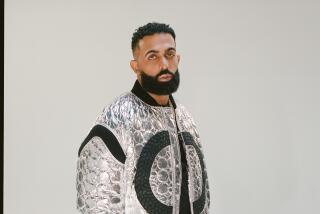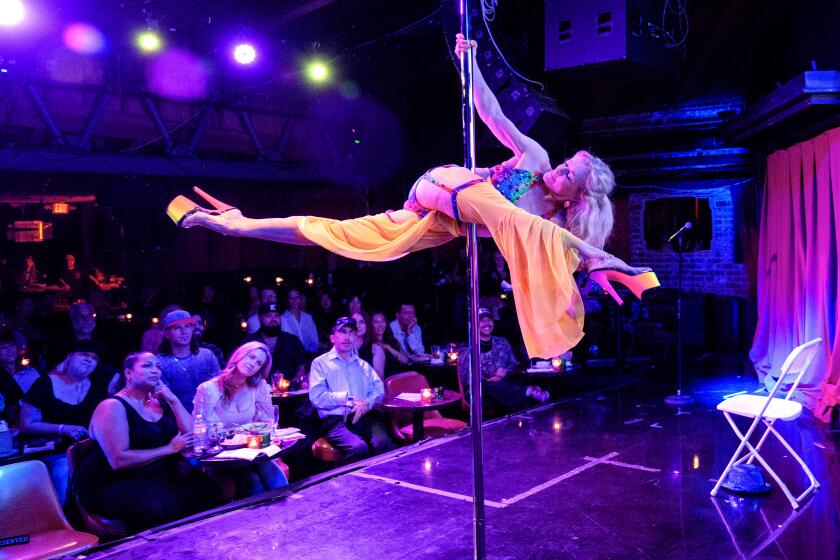A life recovered, then taken by coronavirus
The accordion hummed, the snare snapped, and a warm baritone voice rolled out over the cemetery lawn.
Yo se lo dije a mi padre, quiero que vengas conmigo.
I told my father, I want you to come with me.
A Catholic priest stood over a white enameled coffin with gleaming brass fittings. One at a time, each member of the small funeral party tossed a handful of dirt into the grave in a North Hollywood cemetery.
Quiero pistiar esta noche, como dos grandes amigos, para decirte papá, lo mucho que te he querido.
I want to drink tonight like two old friends, so I can tell you, Dad, how much I’ve loved you.
The pandemic’s toll: Lives lost in California
Hundreds of people have died in California due to the COVID-19 pandemic. These are some of their stories.
The corrido, “La Troca del Moño Negro” by norteño band Los Originales de San Juan, is a tender plea from a son to a father, a request that if the son dies, the father not cry and in place of a hearse use the son’s black pickup truck, adorned with a black bow.
But as Gaspár Gómez’s family buried him in the shade of a tree, the melody and words carried a different weight. Instead of the fated death of a child, the mourners wept over the loss of a father.
Chosen by one of his daughters, Lucy Gómez, the song was a tribute for a corrido-loving, hardworking man who spent many dark years estranged from his children and who often failed to be the stalwart father the lyrics describe as a “man of steel.”
The tribute was made all the more poignant by the knowledge that the coronavirus caught up to Gaspár even as he was working to repair a life marred by substance abuse struggles and legal trouble.
“How does your life straighten up and then you’re taken again?” Lucy asked.
Cuando raye el sol, tengo una bronca pesada. Si no me vuelves a ver, la suerte ya estaba echada.
Once the sun shines, I’ll face a tough reckoning. If you don’t see me again, we were already out of luck.
Gaspár was born in Santo Domingo de Atani, a small town in the Sierra Juarez mountains of Oaxaca, Mexico. As a teenager he immigrated to the United States along with his sweetheart, María.
He didn’t have papers, so he found work as a day laborer on construction projects, the same work he would do for more than three decades until COVID-19 made him too weak to continue.
The couple moved to Van Nuys and had four children: María, Lucy, Stacie and Cristián. Gaspár loved to take them to the beach, to the pool and to the park every Sunday after Mass.
“He was a really good dad when we were kids,” said María de Jesús Gómez, his oldest daughter. “He worked so hard for us. He just wanted to be happy and loved.”
When the children were still young, Gaspár and his wife divorced. The children went with their mother. Lucy called the divorce his “downfall.”
“He begged for us to stay with him. But we were just kids. I don’t know if he understood that we didn’t have a choice,” María said. “If you don’t have help and you don’t have loved ones, it’s destructive.”
COLUMN ONE
COLUMN ONE
A showcase for compelling storytelling from the Los Angeles Times.
Desde muy chico creí que eras el hombre de acero.
Since I was very young, I believed you were the man of steel.
In real life, there are few men of steel. Gaspár began to drink heavily and soon turned to drugs. His brother Marcelo, who worked alongside Gaspár on construction projects for decades, joined him.
“We were lost in alcohol and drugs,” Marcelo said in Spanish. “We’d do crack and crystal. Whatever we could find. You find so much in the streets.”
Court documents show Gaspár pleaded no contest on three occasions to reckless driving and driving without a license, grand theft and possession of controlled substances for sale. Family members say that this was only a fraction of his legal troubles and that he spent at least five stints in jail and that government officials deported him at least three times.
“If they [the police] saw him on the street with a beer they’d be like ‘Vámonos pa’fuera.’ Let’s go, you’re out of here,” said Marcelo, laughing. “He was en malos pasos” — on a bad path.
When Gaspár was deported, he’d call Marcelo for help. At times, Marcelo would tell his brother he needed to get clean first. “But I would always bring him back. He’s my brother.”
His ex-wife and children settled in Madera, four hours north of Los Angeles. Sometimes Lucy and María would ride down on the bus to visit. He shared an apartment with a few other men, but when the girls came for Christmas, he made sure to decorate with Christmas lights so they’d feel at home. He liked to take the two to local restaurants to dance.
For the children, life back in Madera was hard. María joined the Army at 17 and eventually resettled in Washington state. Lucy remained close with Gaspár and was eventually adopted by a couple in Porter Ranch who had employed Gaspár off and on for years.
Tú has sido mi protector, también mi madre querida.
You have been my protector, so has my dear mother.
Often, instead of Gaspár protecting his family, it was family that protected Gaspár. The third time Gaspár was deported, Lucy said that at first, he didn’t want to come back. But Gaspár had spent his adulthood in the United States. His life was here. His children were here, even if he didn’t see them often.
Lucy, then just 17 years old, said she helped raise the $1,500 to pay for a coyote to smuggle him across the border.
But then the coyote called. Gaspár made it across the border, but the smugglers were holding him at a “drophouse” somewhere in Arizona. If the family didn’t find an extra $1,500 — per Lucy’s recollection — they would kill Gaspár.
No one is really sure why Gaspár’s smugglers-turned-captors eventually relented — maybe they got softer, maybe they realized they wouldn’t get the money, maybe Gaspár got sick — but they did, allowing a family member to come pick him up.
Gaspár didn’t talk about the ordeal afterward, but Lucy said he didn’t emotionally recover for a few years. And still, Gaspár struggled with substance abuse. Eventually even Lucy cut off contact.
“If you don’t want to change, I can’t change you,” Lucy recalled telling him. “I hope that one day you do get to find that family.”
Then one day, while waiting in line at the supermarket, he met Elba Regalado. Gaspár was abundantly friendly and quickly struck up a conversation — it was in his nature, Elba said. She was getting ready to pay, and Gaspár wouldn’t stop chatting.
They became friends, and eventually a couple. She loved his charm, his charisma, his dancing.
Like many of his close friends and family, she fondly referred to him as “el gordito” (the little chubby man). Lucy said some people didn’t know him by any other name.
At first, he still drank. A lot. Elba said he sometimes carried around cans of beer in a backpack. She said that once, after a night of heavy drinking, he tried to hit her. She decided she was done.
But Gaspár wasn’t. She ignored his calls, over and over, until finally picking up to tell him she couldn’t be with him. He begged for a second chance and she agreed, cautiously. And it was then, his family said, that he began to turn a corner.
“I stayed in my world and I would see [Gaspár and Elba] go out to eat, to the park. He had changed so much. He seemed so, so happy,” said Marcelo, who continued to struggle with substance abuse until himself quitting two years ago, partially thanks to Gaspár’s encouragement.
“He needed a family to take care of. It gave him that chance of living again,” Lucy said. Gaspár stopped drinking and began attending Mass with Elba.
“My brother and I started getting closer to God,” Marcelo said. “I talk to God every day and thank him that I’m alive.”
Elba and Gaspár moved in together with her teenage daughter, Janette, in Pacoima (Elba’s older daughter, Marisela, lived in Mexico at the time). Lucy started talking to him again. She got to dance with him one more time at Elba’s daughter’s quinceañera a few years ago. He even began communicating with his other children again.
On April 13, Gaspár told Elba he was feeling sick. A few days later, he tested positive for COVID-19, then was hospitalized with respiratory problems. On May 3, after almost three weeks on a ventilator, Gaspár died. He was 51.
The last time María saw Gaspár was seven years ago, while she was visiting a relative in Los Angeles.
After five years in the military and a tour in Iraq, María had gone to college in Portland, Ore., then moved to Washington. Every once in a while daughter and father would catch up over the phone, but after years of distance, the reconciliation process was painstakingly slow.
“I’m 31 years old and I’ve spent half my life without my dad,” she said, sobbing. “I didn’t even know if I was entitled to mourn him.”
Dame un abrazo papa, tal vez sea la despedida.
Give me a hug, Dad, maybe it’ll be our goodbye.
Times staff writer Tomás Mier contributed to this report.
More to Read
Sign up for Essential California
The most important California stories and recommendations in your inbox every morning.
You may occasionally receive promotional content from the Los Angeles Times.









